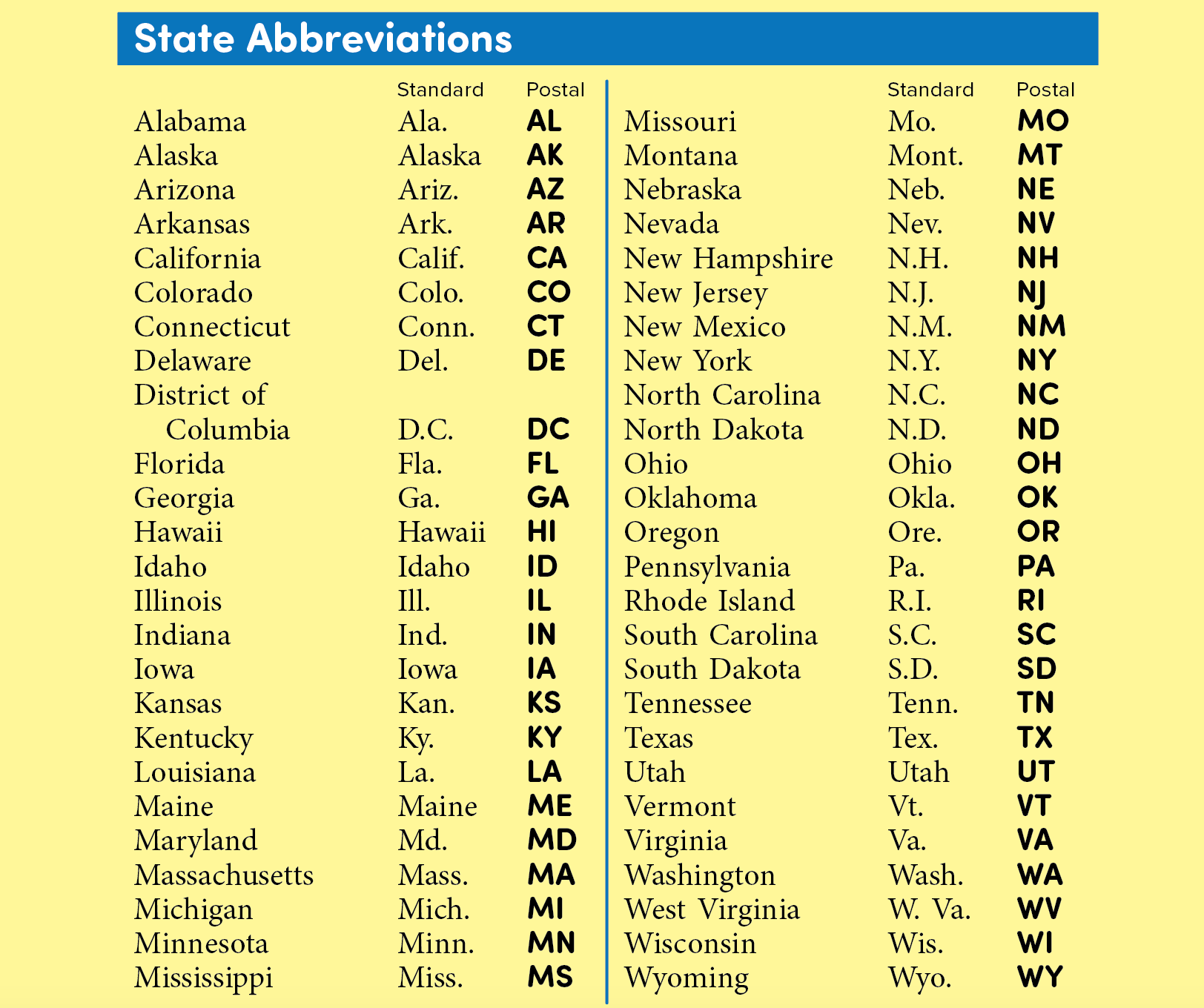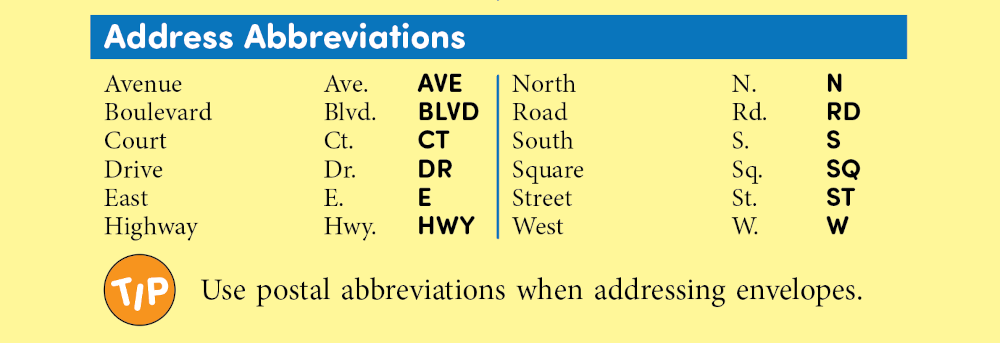WT 332
Page 332
Checking Mechanics
In the past, people set type by hand. They reached into an upper case to grab capital letters and into a lower case to grab small letters. Now, these letters are all right there on your computer. But when do you use uppercase and lowercase letters? This section gives you rules and examples.
It also helps you write plurals of nouns and use numbers and abbreviations correctly. Think of this section as your toolbox for the mechanics of language!
Mechanics

WT 333
Page 333
Capitalization
Proper Nouns and Proper Adjectives
Proper Nouns and Proper Adjectives
Capitalize all proper nouns and proper adjectives. A proper noun names a specific person, place, or thing. Proper adjectives are formed from proper nouns.
Montana is Spanish for “mountain.”
Ohio is Seneca for “great river.”
(proper nouns)
I love Mexican food.
I also enjoy Chicago-style pizza.
(proper adjectives)
Words Used as Nouns
Capitalize words such as mother, father, mom, dad, aunt, and uncle when these words are used as names.
If Mom asks, Dad and I went to see Cousin Aidan in a play.
No capital letter is needed if you say our mother, my dad, and so on.
My dad said my cousin was hilarious.
Titles Used with Names
Capitalize titles used with names.
King Charles III
Secretary of State Blinken
Dr. Jane Goodall / Dame Jane Goodall
Mayor Eric Adams
Do not capitalize titles when they are used alone: the king, the doctor, the mayor.
WT 334
Page 334
Capitalization (continued)
Abbreviations
Capitalize abbreviations of titles and organizations.
Mr. (Mister)
Mrs. (Missus)
NBC (National Broadcasting Company)
MLB (Major League Baseball)
Titles
Capitalize the first word and last word of a title and every important word in between.
“The Wheels on the Bus” (song)
“I Have a Dream” (speech)
Peter Pan and Wendy (movie)
How to Eat Fried Worms (book)
The Chronicles of Narnia (series)
Into the Woods (musical)
First Words
Capitalize the first word of every sentence.
Vacation begins today.
Capitalize the first word of a direct quotation.
Mom said, “Let’s go to a movie.”
I replied, “What should we see?”
Days and Months
Capitalize the names of days of the week, months of the year, and special holidays.
Sunday May Cinco de Mayo
Easter July Juneteenth
Do not capitalize the seasons: spring, summer, fall, winter.
WT 335
Page 335
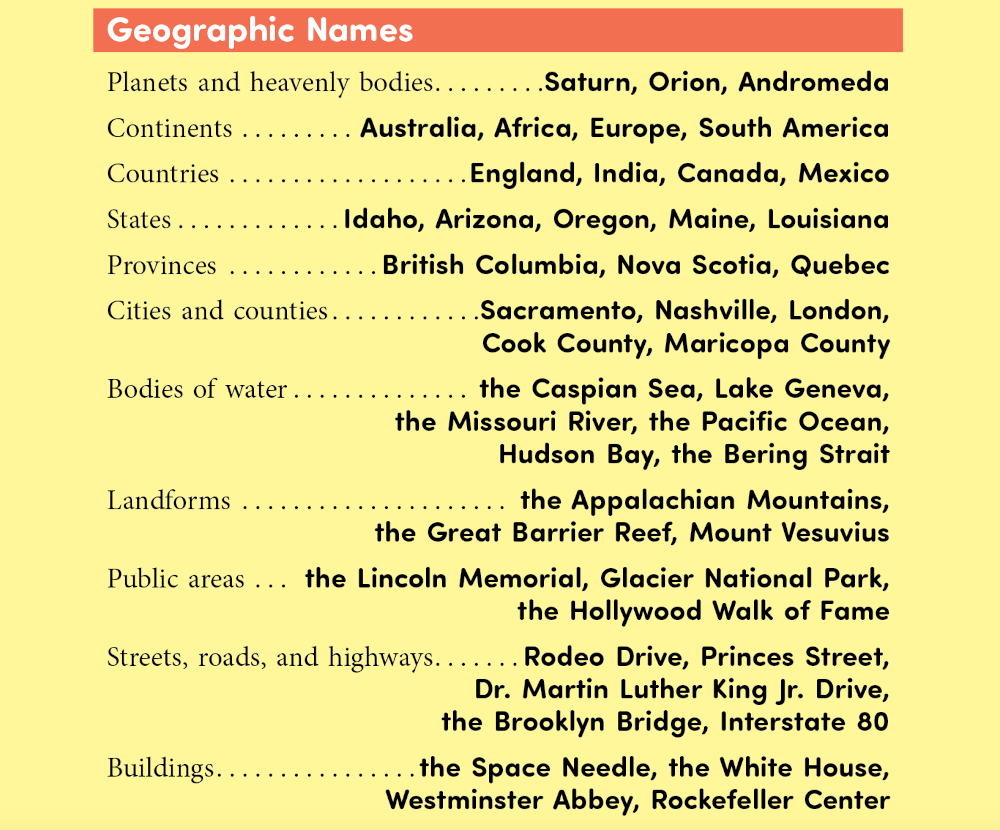
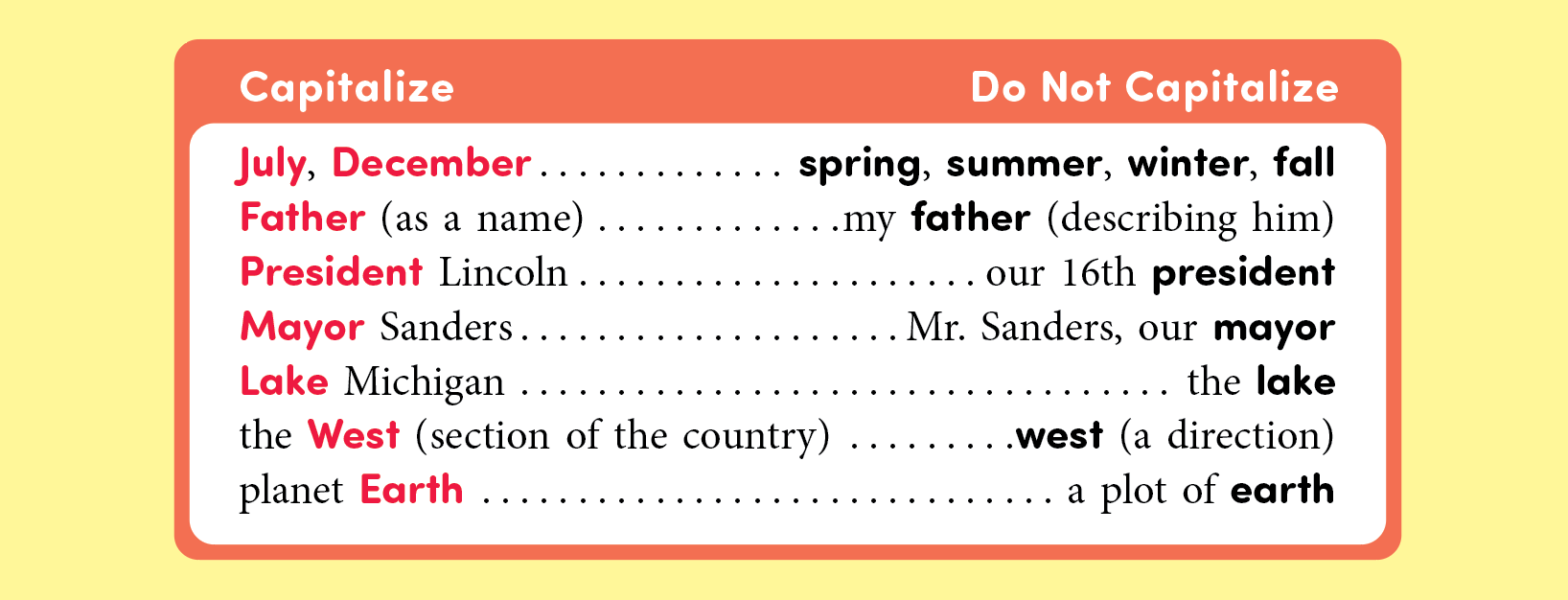
WT 336
Page 336
Plurals
Most Nouns
Plurals of most nouns are made by adding an s.
friend → friends
toe → toes
Nouns Ending in ch, sh, x, s, and z
The plurals of nouns ending in ch, sh, x, s, and z are made by adding es to the singular.
bunch → bunches
six → sixes
peach → peaches
mess → messes
bush → bushes
buzz → buzzes
Nouns Ending in y
The plurals of nouns that end in y (with a consonant letter just before the y) are formed by changing the y to i and adding es.
party → parties
baby → babies
puppy → puppies
spy → spies
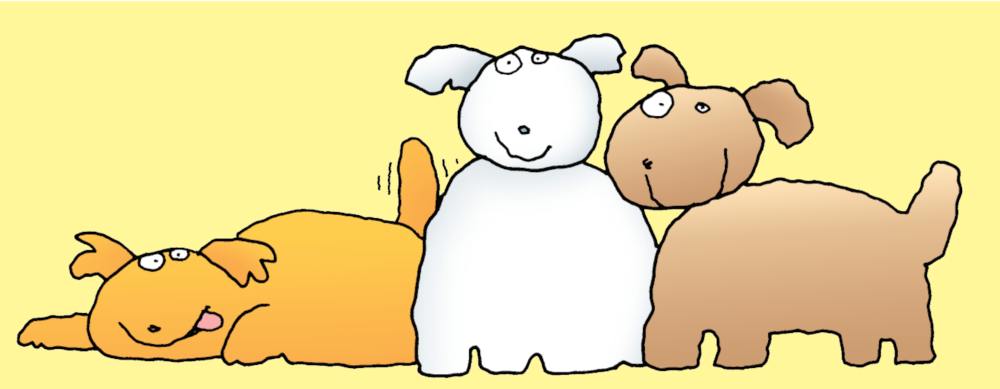
The plurals of nouns that end in y (with a vowel before the y) are formed by adding s.
donkey → donkeys
tray → trays
key → keys
boy → boys
Irregular Nouns
Irregular nouns form a plural by taking on an irregular spelling.
woman → women
man → men
child → children
goose → geese
ox → oxen
mouse → mice
WT 337
Page 337
Numbers
Writing Numbers
Numbers from one to nine are usually written as words; numbers 10 and over are usually written as numerals.
two six 12 36 144 1,760
Except: Numbers being compared should be kept in the same style.
The cast of Scrooge has actors from ages 8 to 88.
Very Large Numbers
You may use a combination of numbers and words for very large numbers.
342 million 14 trillion
Sentence Beginnings
Use words, not numerals, to begin a sentence.
Twelve students signed up for the park cleanup day.
Numerals Only
Use numerals for any numbers in the following forms:

WT 338
Page 338
Abbreviations
Common Abbreviations
An abbreviation is the shortened form of a word or phrase. Many abbreviations begin with a capital letter and end with a period.
Ms. Mr. Dr. St.
a.m. p.m. adv. (adverb)
Days of the Week
Sun. (Sunday)
Mon. (Monday)
Tues. (Tuesday)
Wed. (Wednesday)
Thurs. (Thursday)
Fri. (Friday)
Sat. (Saturday)
Months of the Year
Jan. (January)
Feb. (February)
Mar. (March)
Apr. (April)
May (May)
Jun. (June)
Jul. (July)
Aug. (August)
Sept. (September)
Oct. (October)
Nov. (November)
Dec. (December)
Acronyms
An acronym is a word formed from the first letter or letters of words in a phrase.
NASA (National Aeronautics and Space Administration)
Initialisms
An initialism is like an acronym, but the initials (letters) are not pronounced as a word.
MVP (most valuable player)
NBA (National Basketball Association)
WT 339
Page 339
